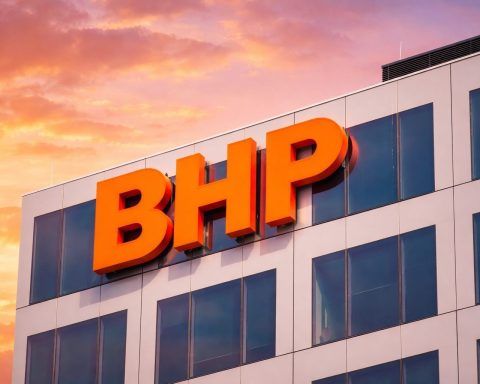Key Facts (as of Sep 29, 2025): – Ticker: EA (Nasdaq). – Price: ~$193.35 (Prev. close) reuters.com (up ~14.9% on 9/26, trading ~25% above pre-announcement levels) economictimes.indiatimes.com. – Market Cap: ~$48.4 billion (250.21 M shares outstanding) reuters.com. – 52-Week Range: $115.21 – $197.33 reuters.com. – P/E (ttm): ~48.5; Forward P/E:~23.4 reuters.com. – Dividend Yield: 0.39% reuters.com. – Consensus Rating: Moderate Buy (consensus score 2.43/3.0; 12 Buy, 15 Hold, 0 Sell reuters.com marketbeat.com). – CEO: Andrew Wilson (also Chairman) reuters.com; CFO: Stuart Canfield reuters.com. – Major Franchises: EA SPORTS FC (soccer), Madden NFL, Battlefield, Apex Legends, The Sims, F1, etc. reuters.com. – Recent Headline: Agreed to a $55 billion takeover (to go private) at $210/share ir.ea.com reuters.com, pending regulatory approval.
Stock Performance & Trends
EA shares have surged dramatically in late September 2025. On Sep 26 (Friday), EA closed about $193.35, roughly 14.9% above the previous day investing.com. In pre-market trading on Sep 29 – when the $210/share buyout was announced – the stock briefly approached the offer price economictimes.indiatimes.com. By the market close it was trading around $193 (up 0% on the day in mid-UTC trading reuters.com), still sitting near its 52-week high of $197.33 reuters.com investing.com. Year-to-date EA’s stock has delivered strong gains (MarketBeat notes a consensus “Moderate Buy” with a broad range of targets marketbeat.com). In the past week alone, excitement over EA’s upcoming releases (notably Battlefield 6) helped lift EA roughly 11–12% higher investing.com. Overall, investor sentiment has been bullish: as one analyst notes, “confidence in EA’s upcoming Battlefield 6 release… has driven the stock higher in recent months” investing.com. In summary, EA’s stock is trading near the top of its 52-week range after a breakout week, reflecting both solid fundamentals and takeover speculation.
Financial Health & Guidance
EA’s latest results show a resilient balance sheet and strong cash flow. For FY2025 (year ended Mar 31, 2025), EA reported net bookings of $7.355 billion and net revenue of $7.463 billion ea.com – roughly flat year-over-year. Net income was modest ($1.121 billion, down from $1.273 b in FY2024) reuters.com. The company ended FY2025 with ~$1.884 billion in total debt on ~$12.37 billion in assets reuters.com, implying a low net-debt position. Operational cash flow remains healthy: trailing twelve-month operating cash was ~$2.08 billion ea.com. EA is also aggressively returning cash to investors – in FY2025 it repurchased 17.6 M shares for $2.50 billion ea.com.
Analyst commentary and company guidance underscore confidence in future growth. CFO Stuart Canfield highlighted that Q4 FY2025 “marked a strong finish to FY25, with broad-based momentum across the portfolio” ea.com. For FY2026 (ending Mar 2026), EA’s outlook calls for net revenue of $7.1–7.5 billion and net income of $795–974 million (EPS ~$3.09–3.79) ea.com. This guidance assumes continued strength in live services and new launches (e.g. Battlefield 6 and a new Skate game) offsetting some weakness in mature franchises. EA expects to maintain its 80% free-cash-flow return ratio via buybacks/dividends through FY2027 ea.com ea.com. In short, EA’s financial position is solid – strong recurring revenue from sports titles and live services fund continued investment, while margins should improve as new games (and the Zynga mobile business) ramp up.
Recent News & Developments
The biggest recent headline is the announced takeover deal. On Sep 29, 2025 EA’s board approved a consortium bid by Saudi Arabia’s PIF, private equity firm Silver Lake, and Affinity Partners to buy all EA shares for $210 each (all-cash) ir.ea.com. This values EA at roughly $55 billion and represents a 25% premium to the pre-announcement price ir.ea.com reuters.com. Investors and analysts immediately reacted: Benchmark Research noted that the deal price “may appear compelling…but falls materially short of the company’s intrinsic value,” given EA’s robust pipeline reuters.com. Wedbush similarly pointed out that the offer price is in line with its own $200/share target (essentially the deal value) investing.com. The deal is expected to close by Q1 FY2027, subject to approvals reuters.com; until then EA remains public and trading.
Aside from the deal, EA has had a busy product slate. Launches and upcoming titles: EA SPORTS FC 26 (formerly FIFA) launched on Sep 26, 2025, with early Ultimate-Edition access on Sep 19. Battlefield 6 is slated for Oct 10, 2025 (PC, PS5, Xbox Series) reuters.com. Other 2025 titles include F1 25 (released May 30, 2025) and the co-op adventure Split Fiction (launched Mar 2025) reuters.com. EA also continues to expand its evergreen live-service franchises: for example, EA SPORTS FC mobile saw record engagement this year ir.ea.com. In early 2025, EA introduced Battlefield Labs, a community-driven testing platform ahead of Battlefield 6 ir.ea.com, signaling strong focus on next-gen engagement.
Partnerships: EA announced a consumer-tech collaboration in mid-2025: Samsung and Microsoft (Xbox) teamed up with EA to bring EA SPORTS FC 25 to Samsung’s Gaming Hub via Xbox Cloud Gaming news.samsung.com. This lets Samsung TV users stream FC 25 through Xbox Game Pass, broadening EA’s reach. Such partnerships (Samsung, Nintendo, Xbox Game Pass and Apple’s mobile store) are part of EA’s strategy to boost digital distribution.
Other developments: There were no major leadership changes in 2025 – CEO Andrew Wilson will remain in place after the buyout, as pledged by the new owners economictimes.indiatimes.com. On the legal front, EA’s notable action was withdrawing plans for a college basketball game: in Sept 2025 EA “rescinded” its college hoops project after rival 2K/Take-Two secured key licenses si.com. EA explained that too many NCAA programs had aligned with 2K, making a full-featured EA game infeasible si.com. While this isn’t a lawsuit, it highlights competitive challenges and licensing dynamics in sports gaming.
Industry Trends
EA operates in a booming global games market. The industry was ~$299 billion in 2024 and is projected to reach ~$601 billion by 2030 (CAGR ~12.2%) grandviewresearch.com. Key growth drivers include mobile gaming, cloud streaming, and immersive technologies. For example, cloud services (Xbox Cloud, Stadia successor, etc.) are expanding access, as seen with EA’s Samsung partnership news.samsung.com. AI is also an emerging trend: while not specific to EA, game-makers are experimenting with generative AI to create content and smarter NPCs. Grand View Research highlights “advancements in real-time graphics, AI-based game development, and AR/VR integration” as accelerating market adoption grandviewresearch.com.
Monetization and regulation are hot topics. Live-service models (microtransactions, battle passes) now generate most of EA’s revenue (76–77% from recurrent spending) take2games.com. Governments worldwide have scrutinized loot-box mechanics (treated as gambling in some countries), forcing companies like EA to disclose odds and adjust practices. In the U.S., regulatory proposals (e.g. federal loot-box rules) have so far stalled, but EA and peers must navigate varying international rules. Additionally, console cycles matter: new consoles (PS5 Pro, next Xbox) should boost EA’s launch sales in 2025–26. Streaming and subscription (EA Play on Game Pass) are also shaping consumer habits.
Competitive landscape: EA’s main public peers include Take-Two and Ubisoft. Take-Two (GTA, NBA 2K) reported strong FY2025 results: bookings up 6% to $5.65B and guided FY2026 bookings to $5.9–6.0B take2games.com. CEO Strauss Zelnick hailed “outstanding results” and said blockbuster releases (e.g. GTA VI in FY2027) will drive record bookings take2games.com. Ubisoft (Assassin’s Creed, Far Cry, etc.) is undergoing a big reorganization: it created a new Tencent-backed subsidiary for its major franchises reuters.com, while cutting some jobs gamedeveloper.com. Activision Blizzard (now Microsoft-owned) continues to develop hits like Call of Duty and Overwatch; notably, Activision just signed a Paramount deal for a CoD movie reuters.com, reflecting the value of its IP. Compared to these peers, EA’s strength remains its massive sports/gaming portfolio and stable live revenues.
Analysts’ Views & Forecasts
Analysts are split but generally upbeat about EA’s mid-term prospects. MarketBeat’s consensus is “Moderate Buy” (15 Holds, 12 Buys) marketbeat.com. Some firms have already raised price targets to match the deal value: e.g., one note reported a ~$200 target (reflecting the $210 offer) investing.com. Others caution that the buyout price may cap upside. Benchmark Research (in published comments) acknowledged the $210 offer premium but argued it still “falls materially short” of EA’s intrinsic value, given its growth pipeline reuters.com.
Wedbush analyst Alicia Reese recently downgraded EA to Neutral (from Outperform), noting the high expectations already priced in investing.com. Wedbush emphasized that Battlefield 6 and other launches make FY2026 critical, but also pointed out that EA’s stock has climbed sharply (≈11.5% in one week) on this optimism investing.com. Benchmark (the firm) remains bullish: it reiterated a Buy rating and $200 target, citing strong anticipation for the new Battlefield and FCreleases investing.com.
On earnings forecasts, consensus for FY2026 (ending Mar 2026) is roughly in line with EA’s guidance (about $7.3B revenue, ~$870M net income), though many forecasts will be updated after the Q2 FY26 results in Oct 2025. Key factors include sports titles (American Football franchise crossed $1B bookings in FY25 ea.com) and new entries. EA’s repeated commitment to return ~80% of free cash to shareholders should continue to support the stock (now temporarily private, the rationale is moot, but indicates confidence).
Conclusion
EA stands at a turning point. Its stock, already strong on solid quarterly results and hit games, just leapt on a transformative acquisition deal. The $55B buyout underscores how the gaming industry’s blockbuster franchises are coveted assets. EA’s financial health is robust, with billions in annual revenue, healthy cash flow, and high-margin live services. Its upcoming game lineup (Battlefield 6, FC 26, etc.) and partnerships (e.g. with Samsung) give it multiple growth engines. Analysts and insiders laud EA’s leadership and content, even as some debate whether $210 per share fully captures that value ir.ea.com reuters.com. For investors, the immediate story is the windfall cash-out; looking forward, the focus will be on EA’s ability to leverage its creative teams and new ownership to drive long-term innovation and returns.
Sources: Company filings and press releases ea.com ea.com ea.com; Reuters and financial news reuters.com investing.com reuters.com; analyst reports reuters.com investing.com; market data from Reuters reuters.com reuters.com.









